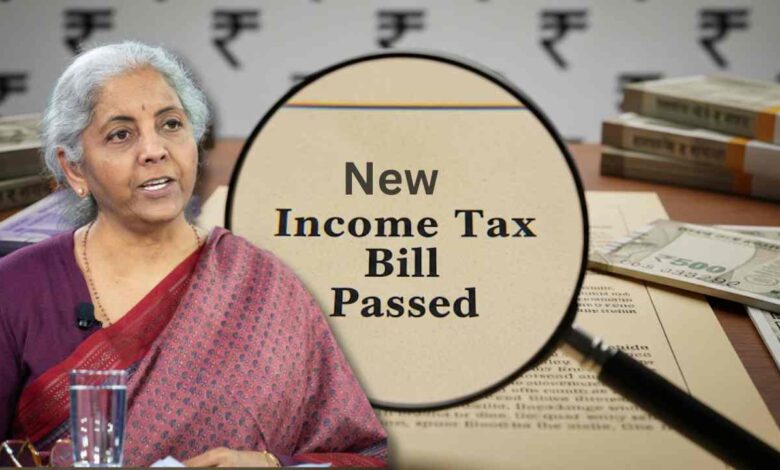New Income Tax Bill: Passed! Will the ₹12 Lakh Rebate Be Removed? Know the Key Changes

New Income Tax Bill: Discussions are underway about the new Income Tax Bill passed in the Lok Sabha. This new bill has been introduced to replace the Income Tax Act of 1961. Its primary objective is to make the tax law comprehensible and transparent. Let’s delve into some important aspects of this new bill and its impact.
Key Changes in the New Income Tax Bill
This bill introduces several major changes that are very important for the average taxpayer.
- Simplification of Language and Structure: The most significant feature of the new bill is its simple language and concise structure. Instead of the previous nearly 800 sections, there are now 536 sections, and the chapters have been reorganized into 23. This will make it easier for the general public to understand the law.
- Change in Terminology: Confusing terms like ‘Previous Year’ and ‘Assessment Year’ will now be replaced by the term ‘Tax Year’. This means the year for which tax is filed will simply be called the ‘Tax Year’.
- Tax Structure Unchanged: This bill does not introduce any changes to the tax structure or tax rebates. This means the previously announced tax exemption on income up to ₹12 lakh remains in effect.
- Implementation of Digital Procedures: Tax assessment and compliance processes are being made faceless and digital-first. This will reduce human intervention, increase transparency, and minimize harassment for honest taxpayers.
Protections for Taxpayers
The new bill also includes some measures to protect taxpayers.
- Exemption for Religious Trusts: Anonymous donations to religious trusts have been kept outside the tax ambit. However, anonymous donations to other charitable trusts (such as for education or hospitals) will remain taxable.
- Refunds on Belated Returns: Tax refunds will be available even if the income tax return is filed late. However, penalties for late filing may still apply.
- Data Privacy: The language regarding access to personal data (like emails, social media) during searches has been moderated. However, the government may still be able to access such information indirectly.
The Impact of These Changes
These changes will simplify the rules for salaried individuals and the middle class. Processes will become easier for small businesses and MSMEs. Non-profit and religious trusts will receive protection, and tax-related litigation is expected to decrease due to clearer laws.
Get Instant News Updates!
Join on TelegramHowever, a point of controversy is that this bill was passed in the Lok Sabha without any debate. It is expected to come into effect from April 1, 2026, after being passed by the Rajya Sabha and receiving presidential assent.

